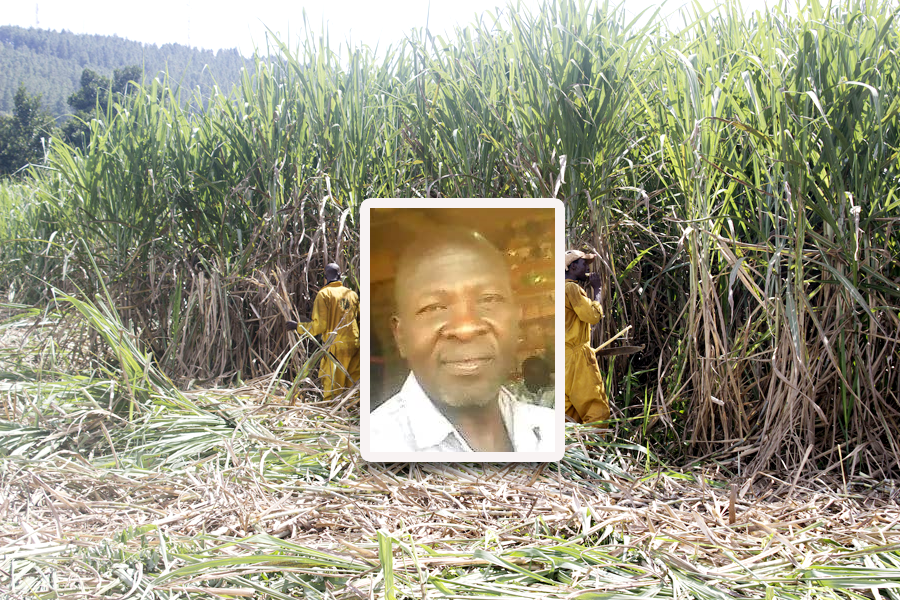Scientists warn of a long-term negative effects of micro plastics in soils
Environmental contamination by micro plastics is now considered an emerging threat to biodiversity, ecosystem functioning and soil ecosystems.
Micro plastics are a diverse group of polymer-based particles that have become iconic symbols of anthropogenic waste and environmental pollution, according to scientists.
Plastics are produced, used, and disposed of in terrestrial or continental systems where they interact with the biota.
One of the most severe complications of this pollution is that the chemicals from the soil will contaminate the crops grown on them and the same contaminated soil also has the potential to seep into large water bodies, which will have an effect on the overall ecosystem, thus, becoming a major environmental issue.
Amina Nansove, an urban farmer in Kyebando, Kawempe division, who was struggling to remove plastic bottles and single use polythene bags buried in her garden, said plastics are very dangerous when it comes to crop growing since they are a non biodegradable substance.
She explained that before her land was converted into a garden decades ago, residents could dump plastics on it, leaving a heavy task for the future generation that would need to use the land for farming.
"I have to sort out the polythene bags from the garden because if you want to plant say bananas, they could cause the blockage of water from infiltrating into the soil, something which can affect crop yields," she said.
Soil is a non-renewable resource, vulnerable to further deterioration in its quality and relatively little of plastic waste is recycled because there are various types of plastic with different chemical compositions.
Indeed, scientists have warned that micro plastics in soils could have a long-term negative effect on the ecosystem and consequently reduction of crop yields.
They argue that terrestrial plastic pollution is a growing concern that threatens all biological organisms.
Fredrick Muyodi, the environmental scientist, expressed concern that plastics get more dangerous when they change to micro plastics in the soil.
"The earthworms may feed on the tiny particles, they may feed on them and because they are almost not biodegradable that would cause a very big effect on them. These micro plastics absorb pollutants and those pollutants are exposed to the earthworms and therefore, they affect their functioning," he explained.
For instance,he noted that the earthworms would not be able to breakdown different organic matter within the soil “They may not be able to move around to create those spaces”
As the situation persists, Onesmus Mugyenyi, the manager environmental democracy at Acode called upon government to implement the legislative ban on single use polythene bags.
"If the president and his executive put their foot on the ground and say the production and the importation of the prohibited plastic bags should happen, it would definitely happen," he said.
David Duli, the country director World Wide Fund for Nature (WWF) said the dangers of deadly plastics are worth highlighting noting that plastics decrease soil water holding capacity, killing organisms hence leading to low crop production.
"It is now we are seeing its impact in the environment negatively and affecting our productivity and affecting our health.so we need that level of aggressiveness," he said.
WWF Uganda, a major stakeholder in the fight against environment degradation launched the earth hour campaign aimed at stopping the use of plastics.
Parliament passed the Finance Act (2009) that imposed a ban on the importation, local manufacture, sale or use of single use plastic bags but to-date, the ban hasn’t taken effect.
The ban only applies to the thin, single-use plastic carrier bags that are less than 30 microns, which are used for conveyance of goods and liquids. An Excise Duty of 120% was also imposed on other plastic materials.
The implementation of the ban has faced challenges after several manufacturers lobbied for a grace period to empty their stores of the polythene and subsequently, many companies continued circumventing the ban.
Through the 'Taasa Obutonde' campaign, Next Media Services with its partners hope to cause a required mind shift for people to reduce the use and responsible disposal of these plastics.













